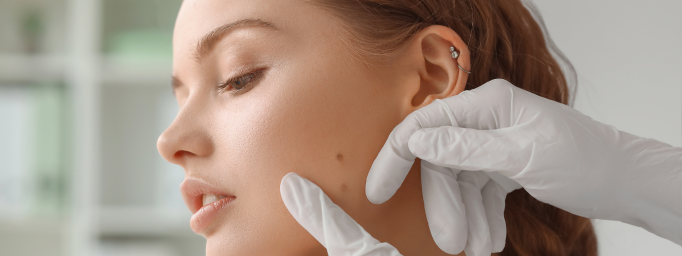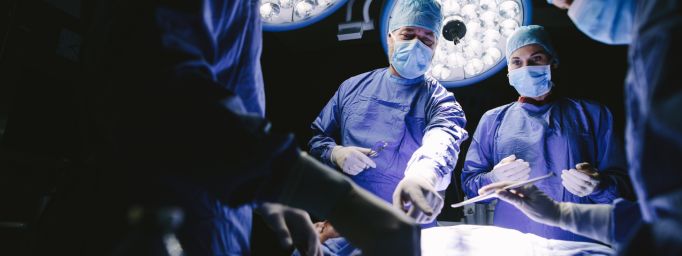A pilonidal cyst refers to an easily releasable, obstructive, tender, and often recurrent cystic lesion situated in the natal cleft, at the level of the coccyx. Although it starts as something rather trivial, it can snowball into a problem that has to be addressed by a doctor for Pilonidal Cyst. Knowing which specialist to ask for a pilonidal cyst will also enable you to get the right doctor and treatment. This is a breakdown of each of the doctors who treat pilonidal cysts, what to expect during your consultation, and how each specialist supports your treatment process.
List of specialized Doctors whom you can consult
1. Primary Care Physician (PCP)

Often, you can receive your initial diagnosis of pilonidal cyst from your PCP or you may be referred to him or her after getting the initial diagnosis from another specialist. PCPs are GPs who can treat many ailments, and refer patients with skin diseases including pilonidal cysts, for further examination. During your visit, your PCP will:
- Assess Symptoms: Assess the features, check the physical condition, and decide whether the cyst is inflamed or requires additional study.
- Provide Initial Treatment: Recommend some of the initial approaches in its management like administering antibiotics in the case of infection, or pain medication.
- Referral to Specialists: Forward you to a surgeon if surgery or further classified treatment is necessary.
2. Dermatologist

Since pilonidal cysts concern the skin, dermatologists are most desirable as a specialty for diagnosing and treating this disease. They are fully conversant with the management of diverse skin conditions such as cysts and abscesses. A dermatologist will:
- Examine the Cyst: An assessment of the cyst should be carried out for the diagnosis to be done and for other diseases to be ruled out.
- Perform Minor Procedures: Take care of simple cases whereby you need to drain the cyst or just surgery minor operations.
- Manage Chronic Cases: Include subsequent care and follow-up for cysts that are more persistent or recurrent, and possible dermatological treatments to avoid reappearance of the cysts.
3. General Surgeon

If the disease is severe or chronic, affecting a large area, or if cysts recur frequently, one should consult a general surgeon. General surgeons are trained to perform operations in various fields or disciplines and are also capable of performing pilonidal cyst excisions. A general surgeon will:
- Evaluate the Need for Surgery: Determine if the lesion needs surgery, given that it is a cyst or it recurs or maybe large, located in a critical area.
- Perform surgery to remove pilonidal cyst: Perform the excision of the cyst and sinus tract which might require a complicated operation in cases of large or recurrent cysts.
- Provide Post-Surgical Care: Advice on postoperative care such as the dressing of the incision site, administration of pain, and the number of days or weeks one should come for review.
4. Colorectal Surgeon
Sometimes if the pilonidal cyst is complex or there are complications in the anal or rectal region then a colorectal surgeon is also involved. Diseases of the colon, rectum, and anus are examples of some of the conditions that can be managed by colorectal surgeons and hence they can offer specialized care for pilonidal cysts in those areas. A colorectal surgeon or Pilonidalm Cyst Doctor will:
- Handle Complex Cases: Treat all forms of pilonidal cysts, especially the complex ones that are located close to the anal area or those that require complicated surgery to be done on them.
- Manage Long-Term Care: Coordinate follow-up as well as other aspects of maintenance care to lessen the possibility of relapse.
Now, with all this information, you do not have to think much about what doctor treats pilonidal cyst.
What to Expect During the Consultation?
- Medical History Review: The doctor will want to know of prior treatment episodes related to pilonidal cysts and other problems you may be having.
- Physical Examination: A clinical examination with emphasis on the cyst and the associated area will be done to ascertain the degree of the pathology.
- Diagnostic Tests: The doctor might prescribe further investigations in the form of imaging like x-rays MRI or histological tests where by assessing the effects of the cyst.
- Treatment Discussion: Based on the size of the cysts, the frequency of the cysts, as well as the intended action of the doctor about the cyst, an action plan will be given which would entail the use of medication, minor procedures, or surgery. And how long does it take in recovery from a cyst procedure.
- Referral if Needed: Besides, if the place of your sickness is such that it requires the attention of a specialist, then you are referred to the specialist.
Wrapping Up
Any condition associated with a pilonidal cyst requires the input of several specialists to correctly diagnose the problem, offer treatment, and oversee patient care. Whether one begins with his general practitioner, consults a dermatologist, or needs a general or colorectal surgical procedure, the endpoint is the relief of symptoms, treating the cause, and avoiding future occurrences. If you think you may have a pilonidal cyst or are having the symptoms, approaching the right specialist in the first place is useful to ensure that you get the kind of treatment that will enable you to recover fully.







